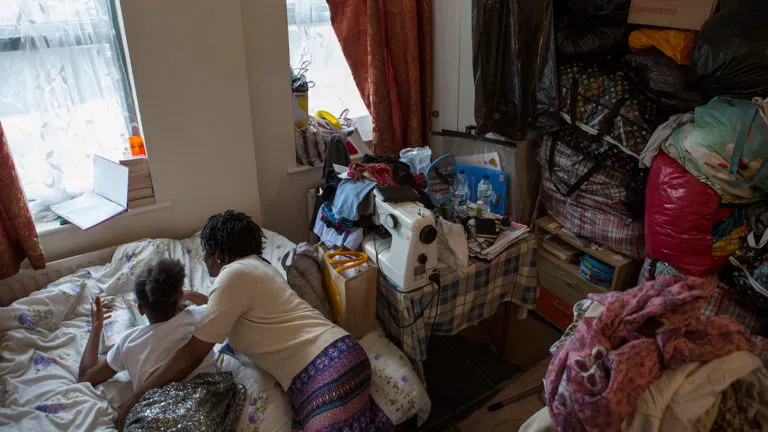World Homeless Day: ending our housing emergency
Published: by Steph Kleynhans

Raising awareness for World Homeless Day is something we shouldn’t have to be doing. However, with almost 280,000 people – 126,000 of who are children – currently recorded as homeless in England, it’s vital that we continue to mark this day.
Homelessness goes much deeper than rough sleeping, although this is the sharpest visible reminder of the problems that come from not having a stable home. But our country’s chronic lack of social housing and welfare reforms are driving up homelessness in all its forms – people sleeping in their cars, in hostels, or outstaying their welcome on friends’ sofas, as well as being forced to live on the streets. The government is making moves to tackle homelessness across the country, but how effective have they been?
Recent legislation: how far does it go?
Recognising the increase in homelessness, the government introduced and implemented the Homelessness Reduction Act (HRA) in April 2018. This aimed to give further powers and duties to councils to prevent homelessness. In particular, councils now have a duty to rehouse anyone who is homeless or threatened with homelessness (provided they are eligible to assistance in the UK). Previous legislation meant that councils only had a duty to rehouse those who were in ‘priority need’, so those with dependent children or other vulnerabilities.
To help prevent homelessness, councils are now obliged to assist anyone who is eligible and threatened with homelessness within 56 days. They must help them save their home or, where possible, find them suitable alternative accommodation to allow them to make a planned move before they’re evicted.
The government have also implemented a Rough Sleeping Strategy to meet their manifesto target of halving rough sleeping in this parliament and ending it by 2027. They have backed this up with funding, including money for a broad range of schemes which meet local need. For example, initiatives that help people leaving prison find suitable sustainable accommodation.
You can’t fix homelessness without affordable homes
These efforts to support people are welcome, but without tackling the structural problems, they will only go so far. The extent of the housing emergency in England is highlighted by the huge numbers of people affected. In the last year in England, a household became homeless every four minutes. Among those households who are homeless in England, almost 85,000 of them are living in temporary accommodation – a figure that has risen 45% over the last five years.
A lack of support on the ground is driving this increase, but giving councils more power to help will not solve the true nature of the emergency – it’s more fundamental than that. With so many more people being driven into homelessness, we need more than the HRA to help once people start to struggle. Instead we need a major but simple shift in housing policy. We need a new generation of social rent housing to truly tackle the fundamental cause of homelessness: the lack of genuinely affordable homes.
The private rented sector isn’t a suitable alternative
The current shortage of social rented housing is pushing more and more people – including families and older people – into the expensive, insecure private rented sector. As our recent research shows, one in three working families are only one paycheque away from not being able to afford their rent. It’s not hard to see why so many people renting privately find themselves in precarious situations, teetering on the brink of homelessness.
Even when households are entitled to a top-up by way of Local Housing Allowance (LHA), the housing benefit that is intended to help those struggling to afford a home in the private sector, it is still difficult to make ends meet. LHA has been subject to cuts, changes and a four-year freeze and as a result, falls well below covering costs in local rental markets. The issue of unaffordability is now so bad that in 97% of areas in England, for a family living in a two bedroom home, the LHA rate would not cover even a modest rent level. This is leaving families up and down the country struggling to pay their full rent and having to make impossible decisions about whether to cut back on food, heat their home, or pay their rent.
As well as investing in social rent homes, the government needs to urgently lift the LHA rates so that they adequately cover the bottom third of local markets. This would make a huge, immediate difference to those living hand to mouth, never knowing if their income will stretch to cover their whole rent in any given month.
If we do anything today on World Homeless Day, it should be to remember those affected by homelessness in all its forms. We should be able to adequately support those in trouble to prevent them from becoming homeless in the first place. This includes both genuinely affordable social rented housing and a suitable housing benefit system to support those who need it.
Join 70,000 other supporters. Ask the new government to build a new generation of social housing by signing our petition.